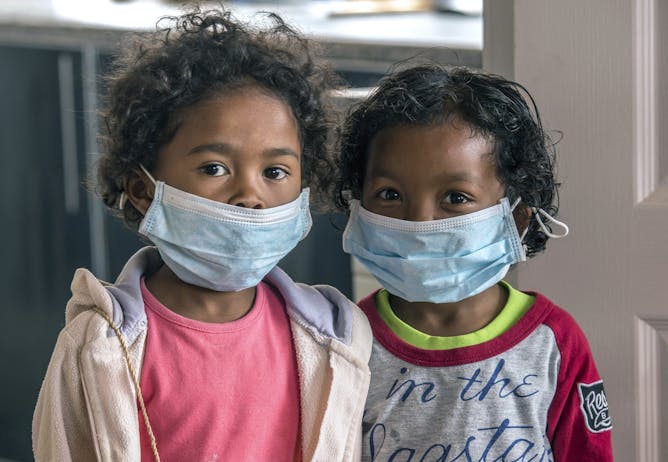|
From the sixth-century Byzantine empire to an outbreak last year in Madagascar, plague has killed millions of people around the globe. But where does it go between outbreaks? A new study reports that plague bacteria have found a very convenient place to shelter and reproduce until starting another infectious cycle.
More than 1.1 billion people in developing countries lack access to electricity. Some 590 million live in Africa, where the rural electrification rate is only 14 percent. So what happens when electricity suddenly reaches many more people? A study in Rwanda found some surprising effects not just on rural households, health centres and schools – but even on beauty parlors.
And, one in seven teens are now sharing sexually explicit or intimate photos or videos online, according to a new global analysis. Many of them are “sexting” illegally, without the consent of individuals featured. And the burden of this trend seems to fall on girls, who report pressure and harsh judgment however they participate.
|

Children at a school in Antananarivo, Madagascar, during a plague outbreak, Oct. 3, 2017.
AP Photo/Alexander Joe, File
David Markman, Colorado State University
Where do plague bacteria go between outbreaks? New research demonstrates that they can survive and replicate inside amoebae that are widely present in soil and water worldwide.
|

Men transporting a large bag in the Muvumba river valley in Kigali. A massive Rwandan electrification programme sets out to benefit rural communities.
Shutterstock
Jörg Peters, University of Passau
A massive rural on-grid electrification programme in Rwanda has delivered considerable benefits. But is it the most sensible way to deliver power to remote areas?
|

Teen sexting has been on the rise over the last decade as smartphones have become more available; meanwhile teen sex has declined.
(Shutterstock)
Sheri Madigan, University of Calgary; Jeff Temple, The University of Texas Medical Branch
Teen sexting is on the rise. Boys and girls are equally likely to share sexually explicit imagery but girls report feeling more pressure to sext and more judgment about how they do it.
|
Politics + Society
|
-
Mashupye Herbert Maserumule, Tshwane University of Technology
South Africa's governing party, the African National Congress, poses a danger to democracy by continuiing to blur the lines between the state and the party.
-
William M. LeoGrande, American University
Decades ago, the CIA created a secret department dedicated to spreading anti-communist propaganda around the globe. A scholar explains how it is comparable to Russian meddling through social media.
-
Tanja R. Müller, University of Manchester
Eritreans in Israel aren't all fleeing persecution, but many have risked everything for a better life in Israel. Now they're at risk of being 'sold' back to Africa.
-
Jawad Kadir, Lancaster University
Ever since partition in 1947, South Asia's two biggest players have been locked in sibling rivalry.
|
|
Business + Economy
|
-
Jason Paul Mika, Massey University
Māori business is booming thanks to entrepreneurs with a strong sense of cultural identity and a willingness to take risks.
|
|
Arts + Culture
|
-
Dani Madrid-Morales, City University of Hong Kong
In China, like in other parts of the world, Africa is routinely treated as a single unit, erasing its linguistic, racial and cultural diversity.
|
|